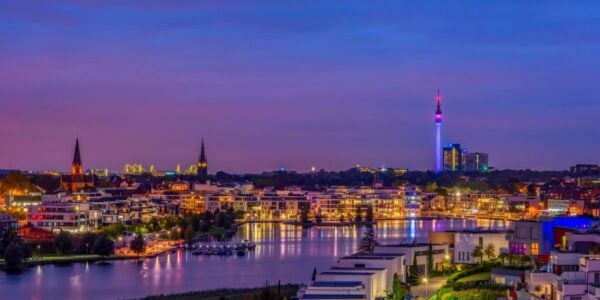The capital of Albania, with its colourful and picturesque buildings, is a real gem. The country’s economic and political centre, Tirana is a vibrant city marked by history. Byzantine in layout, it is full of elegant buildings that recall the Austro-Hungarian and Italian architecture of the late nineteenth and early twentieth centuries, architectural elements of socialist realism, flanked by the contemporary expansion of modern buildings.
Don’t miss
The city centre
Scanderbeg Square represents the heart of the city and is named after the national hero depicted in the equestrian statue that stands out in the middle. The nation’s leading museums are also located here, including the Albanian National History Museum and the Et’hem Bey Mosque, one of the most interesting buildings in the entire region dating back to the late 18th century.
The Pyramid
It was built in the late 1980s as a mausoleum dedicated to the dictator Enver Hoxha but was abandoned with the end of communism. Impressive and decadent, the building is one of the city’s landmarks and will soon be the subject of major renovation. If you visit Tirana, you will be struck by this particularly important historical testimony.
Blloku District
Packed with trendy nightclubs, bars, and restaurants, the Blloku district represents Albania’s desire to be reborn. Once the residential area for officials of the communist regime, today it is the heart of the movida, full of young people, and one of the coolest places in the city.
The green city
Tirana is a very green city with real corners of earthly paradise, like the Grand Park (Parku i Madh), a huge public park that stretches for hundreds of hectares around a large artificial lake. Rinia Park – known in Italy as the “Youth Park” – is the perfect place in the city to relax and cool off.
Travel Documents
Identity Card
An identity card valid for leaving the country allows entry into European Union countries. However, please note that there have been reports of difficulties in some countries with the recognition of renewed and stamped paper identity cards, as well as the refusal of electronic ID cards renewed with a certificate issued by the municipality.
Passport
An ordinary passport is valid for all countries whose governments are recognized by the Italian one, except for any legal restrictions, and can be obtained by all citizens of the Republic. A passport is issued (and renewed) by the police and abroad, by diplomatic and consular representatives. It is valid for 10 years, but in some cases provided for by current legislation, this validity may be shortened.
For more information, see www.poliziadistato.it





